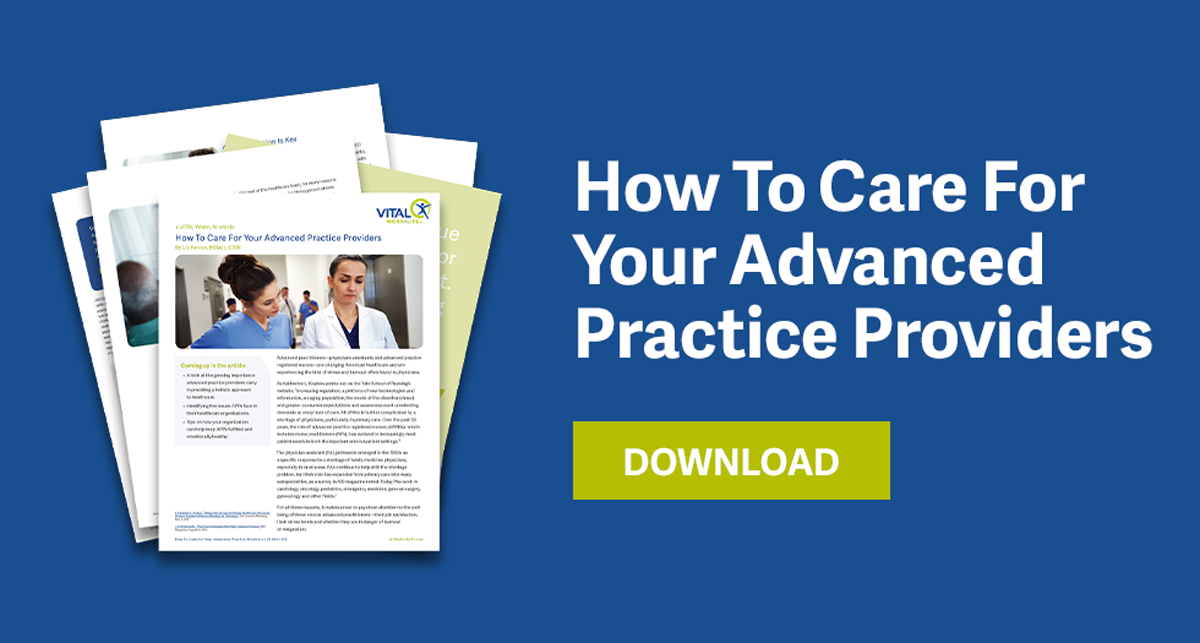Physician Assistant Sean Conroy, PA-C writes: “You walk into the exam room or emergency department, or you are making the rounds for a physician. A patient utters the words you dread hearing: ‘I want to see a real doctor, not an assistant.’”
 The dread Conroy refers to is an ongoing issue for advanced practitioners, and so is the sense of not being fully appreciated that follows a remark like this. “Patient management can be difficult,” Conroy adds gamely, “especially when one questions your medical expertise and advice.”1
The dread Conroy refers to is an ongoing issue for advanced practitioners, and so is the sense of not being fully appreciated that follows a remark like this. “Patient management can be difficult,” Conroy adds gamely, “especially when one questions your medical expertise and advice.”1
Advanced practitioners are trained to deliver top-quality care. But the credibility issue can raise its head at any time. It’s an additional stress factor in an already stressful profession.
Another factor adding to the stress of advanced practitioners is the majority are women,2 and they share with women physicians the challenge of sometimes not being seen as “a real doctor”—that is, someone fully medically competent—due to old-fashioned gender expectations.
“How We Should Be Seen and Valued”
Kelsey Meyer, DNP, a Nurse Practitioner (NP) with Prevea Health, has a ready response. “When I sense skepticism—that a patient is not sure he or she can trust me—I explain what I do, and tell them I was trained to work on my own, but I have the great opportunity to consult with a supervising physician. I let them know that we take our collaboration with the supervising physician very seriously.”
But for Meyer, patient skepticism may be connected to another, equally stressful, issue for NPs: a lack of clarity about their roles in many organizations. “Because my role is not well-defined, I feel I have to seek guidance for what I should be doing,” she says. “But I also want to make people understand just how advanced practitioners should be seen and valued.”
How are these increasingly valuable practitioners, who are extending the reach of your physicians and helping hold down costs, seen and valued in your organization? It makes sense to understand the stresses they experience and care for their well being with as much concern as they bring to their patients.
To learn more about the importance of defining the role of your organization’s advanced practice providers and how to support their well being, read our article,“How to Care for Your Advanced Practitioners.”
1Sean Conroy, “‘I Want to See a Real Doctor”: How to Handle Patients Who Question Your Abilities as an NP or PA,” Barton Blog, June, 2019
2 “Total Number of Physician Assistants, by Gender,” State Health Facts, Kaiser Family Foundation, March, 2019
*“Total Number of Physician Assistants, by Gender,” State Health Facts, Kaiser Family Foundation, March, 2019



